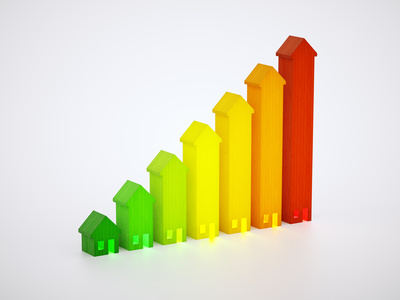 Riding the wave of a hot market can be one of the most thrilling times of a real estate investor’s career.
Riding the wave of a hot market can be one of the most thrilling times of a real estate investor’s career.
Of course, skilled equity surfers know how to exit before the wave breaks on top of them. But how?
That’s the topic of this exciting episode of The Real Estate Guys™ radio show!
Waxing down our microphones to ride the airwaves of talk radio…
- Your hang ten host, Robert Helms
- His hanging on co-host, Russell Gray
With all the talk about whether or not the stock market is overheated, we thought it was time to take a look at real estate and ask the same question.
Of course, real estate isn’t an asset class…because no two properties are the same. So it really comes down to what’s happening in your local market.
Nonetheless, some of the principles of recognizing when a market transitions from appreciation based on fundamentals…to appreciation based on hot (and sometimes dumb) money chasing a trend…apply to real estate just as they do to stocks.
The nice thing about real estate…which is also one of the dangers…is it moves slowly. And while it’s easy to be proactive…it’s also easy to fall asleep at the wheel.
So how do you know when a market is getting too hot?
 No surprise, it’s mostly common sense…a little math…and keeping your greed under control.
No surprise, it’s mostly common sense…a little math…and keeping your greed under control.
So what does that look like?
First, you have to remember where value comes from…and it’s NOT the “greater fool”.
The “greater fool” concept drives a lot of “investing”…where you buy low today in the hopes some greater fool will come along tomorrow and pay you more. Thus you book “a profit” for doing nothing more than carrying the asset for a period of time.
In buy and hold real estate investing…and arguably in all types of long term investing…value comes from income.
So when an asset produces income it has value. The more income…the more value.
Therefore, when an asset’s PRICE starts to climb, the first thing to ask yourself is whether that’s driven by an increase in INCOME…or if it’s simply a greater fool paying MORE for the SAME income.
Obviously, the latter can only go in for so long before the party has to end.
 This is one of the problems with the bond markets right now.
This is one of the problems with the bond markets right now.
For 30 years, investors have been paying more and more for the same income, which drives down yields (interest rates)…until rates fall to next to nothing.
At that point, where can interest rates go?
Right now, interest rates remain VERY low…and therefore very attractive…and even more so when they can be used to get some hot equity off the table.
More on that in a moment…
For now, the lesson is that investors can only bid up an asset price so far…until the income simply can’t support it any more.
And when all that’s left in the market is hot, dumb money chasing a trend…the minute the market cools down..EVERYONE is rushing for the exits.
So, it’s VERY important to note that one of the first ways to recognize a market is heating up is when you see falling cap rates…or rising gross rent multipliers.
These are simply two different ways of saying investors are bidding up prices faster than incomes are growing.
BUT…it’s a little more complicated than that…
Because when interest rates are falling…as they have been…investors can afford to bid up a property’s price faster then the income, but still retain the same cash flow.
In other words, low interest rates are party extenders. As long as cheap money is flooding into the market, the momentum continues.
But what happens when interest rates begin to rise?
Obviously, it takes some…and sometimes a LOT…of wind out of the sails. At least for the speculative money.
So if you’re counting on cheap money being available for the great fool to take you out of an unsustainable position…you’re playing with fire.

Now when it comes to real estate…especially single family homes…sometimes the price appreciation is driven by supply and demand factors. After all, housing is not a discretionary purchase for most people.
Of course, this further complicates the analysis, but it’s still based on income and interest rates.
After all, a homeowners ability to bid up a price comes largely from their ability to leverage their income into a mortgage. Rising incomes and falling interest rates will push prices UP…while falling incomes and rising interest rates will exert DOWNWARD pressure.
The challenge is that owner-occupants don’t usually consider the rental value of their property. They simply look at the payment and decide if they think they can afford it.
But if YOU…the real estate investor…are playing in the single family home market…YOU need to be sure that if you can’t sell the property to a retail buyer…or even another investor (who WILL be looking at the income)…can YOU afford to hold on until market conditions improve?
And if you’re buying any tenant occupied property, even if the cash flow is solid now…and you’re main play is to see sell later for a profit…then even when rents are rising…it’s wise to consider whether wages are rising too.
Sometimes because of low supply and high demand, tenants are simply devoting more of their income to housing.
If so, how long can THAT go on? And what if other prices, like food, energy and healthcare for example…are going up faster than wages? That squeezes your tenants even more.
Here’s the point…
When prices are rising and you’re investing into a mature up cycle, be attentive to market selection, tenant demographic, interest rate risk, and net cash flows.
Each acquisition needs to be structured to survive a downturn.
So, if you’re buying a property in a hot market expecting to sell it in the short term for a profit..and you’re not structured to stay in for the long term…even if that’s a Plan B…you may end up in a VERY uncomfortable position.
Of course, if you’re sitting on several appreciated properties and you’re able to refinance them to extract the equity, but end up with sufficient cash flow to conservatively control the property regardless of the short term price direction…it might be a good idea to get some of that equity off the table.
Liquid equity can be useful for snapping up bargains in a downturn…handling cash flow emergencies over the long haul while waiting for a market to recover…or simply moving into a new market which has more upside potential.
When and how you decide to manage your equity will be based on your ability to recognize a hot market and manage your greed…because hot markets can be seductive.
So listen into this episode as we discuss how to recognize when a market gets too hot….and what to do about it.
Listen Now:
- Visit our Special Reports library.
- Don’t miss an episode of The Real Estate Guys™ radio show. Subscribe to the free podcast!
- Stay connected with The Real Estate Guys™ on Facebook!
The Real Estate Guys™ radio show and podcast provides real estate investing news, education, training and resources that help real estate investors succeed.













